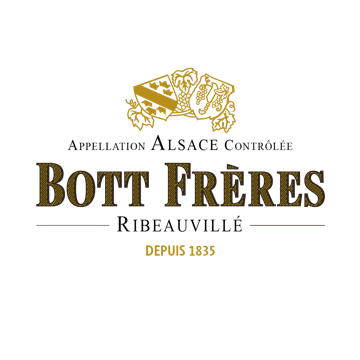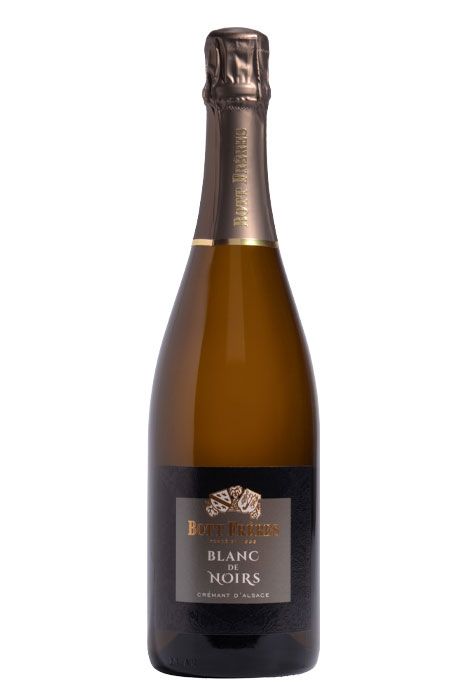Crémant Blanc d'Alsace Brut - Blanc de Noirs
Intense and elegant, it is distinguished by its finesse and purity.
Ideal as an aperitif, with a salmon tartar with dill or a coconut pineapple carpaccio.
Gastronomic Crémant par excellence.
Lemon yellow color with fine and elegant bubbles.
Frank nose, with notes of fruits (citrus fruits, lemon, strawberry, orange blossom), woody smells and pastry.
The mouth combines vivacity and greediness. Smooth, creamy and intense with fruit aromas (red fruit, strawberry, citrus, lemon) and fine pastry touches (butter, pastries).
The finish is long and persistent.
Ideal as an aperitif, with a salmon tartar with dill or a coconut pineapple carpaccio.
This Crémant is made according to the traditional method, respecting the specifications of the AOC Crémant d'Alsace.
The harvest are done manually.
After a first fermentation in thermo-regulated stainless steel tanks, we proceed to the bottling in February so that the second fermentation - in the bottle - can take place, it is the "prise de mousse" stage. After a period of ageing "sur latte" (on lath) of 24 months, the bottles are turned on their tip so that the deposit settles in the neck of the bottle and can be easily expelled during the disgorging stage.
During the disgorging process, a subtle dose of expedition liquor is added.
| Capacity | 75cl |
|---|---|
| Appellation | AOC Crémant d'Alsace |
| Grape variety | Pinot Noir |
| Sweetness | Dry |
| Conservation | 2 to 3 years |
| Operating temperature (mini) | 7°C |
| Operating temperature (maxi) | 8°C |
| Prizes | 92/100 Wine Enthusiast |
| Food pairing | Ideal as an aperitif, with a salmon tartar with dill or a coconut pineapple carpaccio. |
| Sol | Red-orange soils. |
| Terroir | Composed of sandy-clayey silts, silty-clayey-sandy limestones and yellow-beige orange limestone pebbles which rest on a deep slab of limestone and sandstone marl. Soils marked by iron. |
| Culture method | This Crémant is made according to the traditional method, respecting the specifications of the AOC Crémant d'Alsace. The harvest are done manually. |
| Winemaking | After a first fermentation in thermo-regulated stainless steel tanks, we proceed to the bottling in February so that the second fermentation - in the bottle - can take place, it is the "prise de mousse" stage. After a period of ageing "sur latte" (on lath) of 24 months, the bottles are turned on their tip so that the deposit settles in the neck of the bottle and can be easily expelled during the disgorging stage. During the disgorging process, a subtle dose of expedition liquor is added. |

